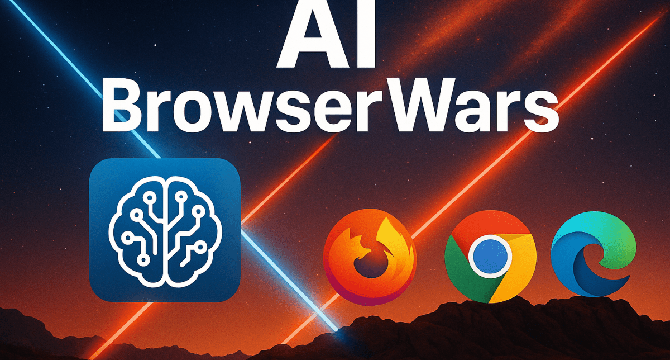VC Cafe
3w
277

Image Credit: VC Cafe
The AI Browser Wars
- The '90s saw the tech war between Microsoft Internet Explorer and Netscape Navigator over internet gateway control.
- Today's 'Browser Wars 2.0' focuses on owning the intelligence layer inside browsers, impacting user interactions.
- Shift from search-dominated browsing to AI-integrated tools like ChatGPT indicates user comfort with AI interfaces.
- Google, Microsoft, and Apple are integrating AI features in their browsers, altering how users interact with the web.
- New AI-native contenders like Dia, Opera Neon, and Perplexity Comet are reshaping browser functionality.
- These contenders offer AI-first browsers that move from reactive to responsive, search to synthesis, and tools to assistants.
- The competition revolves around developing AI layers that offer intuitive user experiences in accessing web-based information.
- The Browser Wars reflect a shift towards AI-mediated interactions, with startups vying to disrupt the browser market.
- Opportunities lie in creating seamless AI assistance in browsing experiences, potentially through app/agent stores.
- The evolving landscape of AI integration in browsers signals a significant change in how people engage with web information.
Read Full Article
16 Likes
For uninterrupted reading, download the app